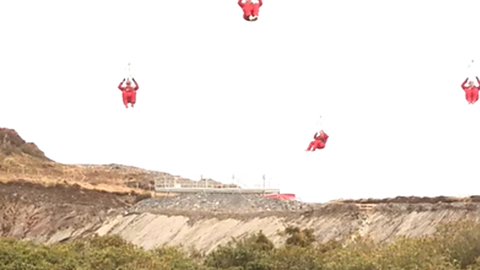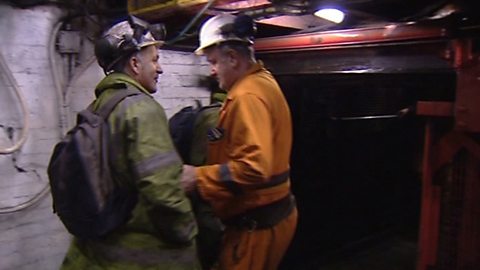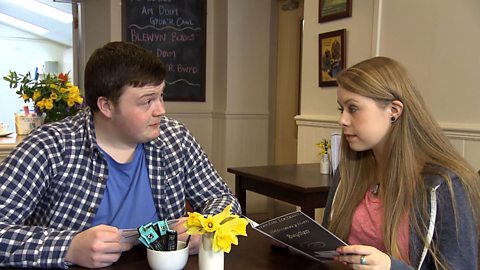Writing
Writing about the past – WJEC
Being able to use the past tense correctly is very important when you learn a language. It enables you to speak, write and read about past events and to understand when people talk about the past.

Personal writing – WJEC
Being able to talk and write about yourself is important when you’re learning a language. It allows you to give information about yourself and express opinions on various topics.

Writing to provide information – WJEC
When you learn to speak and write a new language you must be able to provide information. From describing yourself to discussing special occasions, it's useful to discuss the past and the future.

Writing to ask for information – WJEC
Asking questions as you speak or write is very important when you learn a language. It enables you to establish and develop a relationship and to seek information – in the present, past and future.

Writing about the future – WJEC
Being able to use the future tense correctly will allow you to talk and write about your future plans, as well as help you arrange an event and express your hopes and plans for the future.

- 26 videos

Reading
Reading with confidence – WJEC
Being able to understand written information is important in all walks of life. This guide helps you to analyse, compare and contrast points of view and how to cope with more challenging texts.

Speaking and listening
Individual presentation – WJEC
Being able to deliver a presentation confidently involves a lot of preparation beforehand. To make a good impression, you should plan, research, organise and practise your presentation.

Group discussion – WJEC
Being able to present ideas and opinions in an organised manner in a group discussion involves thorough planning, research and organisation. Consider which language patterns and vocabulary to use.

Socialising day to day – WJEC
Improve your Welsh social skills by learning how to invite, discuss, express opinions and cope confidently with different social situations through the medium of Welsh.

Responding to written materials – WJEC
Discover useful hints to help you find relevant information in written texts and practical tips that will help you respond to different types of materials both confidently and effectively.

Arranging a party or a similar event – WJEC
Planning an event usually requires lots of preparations and lots of questions. Make a good impression by asking the opinions of others, volunteer information, be courteous and use correct Welsh.

- 23 videos

Grammar
Common rules and patterns – WJEC
Understanding grammar means learning how patterns work and being able to transfer them to different situations. This will help you communicate effectively and correctly, so, why not give it a go?

Mutations – soft, nasal, aspirate – WJEC
Being able to mutate is important when speaking and writing Welsh accurately. Learn when each type of mutation is needed and how the beginning of words change when using each one.

Idioms and expressions – WJEC
When you learn to speak and write a new language it's important to use the correct expressions and idioms. Learn when to use them naturally and improve your spoken and written Welsh.

Useful verbs – WJEC
Improve your written and spoken Welsh by practising commonly used verbs. Learn about the most useful ones, which endings to use with them and look at examples of how to use them correctly.

Various tenses – WJEC
Being able to use different tenses correctly is very important when you learn a language. Learn how to describe the past and talk about the future, and give affirmative and negative answers.

- 6 videos

Links
- External linkExternal link
- External linkExternal link
- External linkExternal link
- External linkExternal link